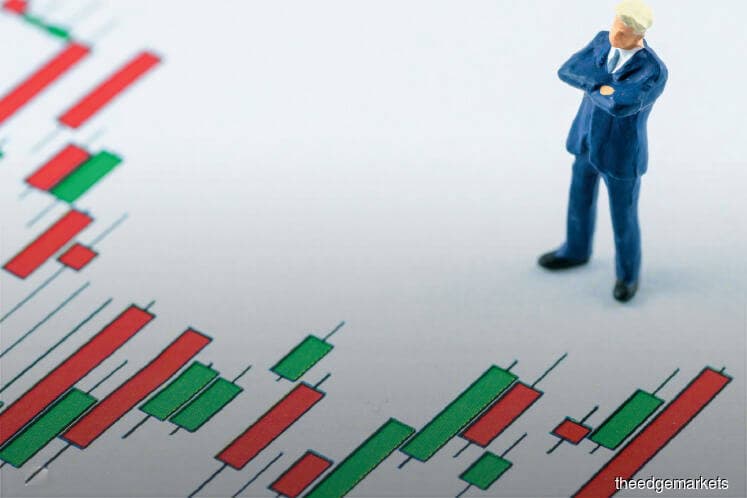
This article first appeared in The Edge Malaysia Weekly on January 7, 2019 - January 13, 2019
WHILE some are hoping for a reversal of the downward trend on the stock market this year, the first week suggests that it is unlikely to be good news for investors as the global equity rout continues.
For example, in a letter to investors on the first working day of the year, Apple Inc lowered its revenue projection for its first quarter, citing weaker demand in China. Its share price tumbled about 10% last Thursday as investors shunned equities and sought the safety of bonds and less risky assets.
The selldown was across the board as the Dow Jones Industrial Average fell 660.02 points or 2.8% to 22,686.22 while the S&P 500 Index lost 62.14 points or 2.5% to 2,447.89. The Nasdaq Composite Index tumbled 202.43 points or 3% to 6,463.5.
Following the selldown in the last quarter of 2018, which extended into the first week of the year, there is a lot of concern that the stock market may be hit by a 10-year cycle, a head of research tells The Edge.
“The crises that hit the Malaysian stock market have always been driven by external factors. In 2008/09, the decline stemmed from a slowdown in the US that was triggered by a subprime mortgage crisis. Then, there was the Asian financial crisis back in 1997/98. A lot of people are worried that an escalation in trade tensions between the US and China will cause a recession,” he says.
Affin Hwang Asset Management portfolio manager Lim Chia Wei agrees that an earlier-than-expected US recession is one of the key risks that will have a broad impact on global markets. However, he says, the base case is that there will not be a US recession this year. In the event of one, debt problems would also emerge, given the high debt levels in the US and China, he adds.
Lim notes that the softer local market seen of late is partly due to the weaker global economic data released in recent months. With these concerns in mind, fund managers are not fully invested at the moment, he points out.
Nevertheless, there are three key events that could turn the tide, Lim says. “The first will be the resolution of the US-China trade war. We believe it will be challenging to arrive at a compromise. Thus, we prefer to wait for confirmation instead of positioning in advance.”
The second event, he says, will be the US dollar hitting its peak and then declining. “A weakening US dollar will provide relief for Asian markets. USD may weaken sometime this year.”
As for the third event, Lim believes stronger Chinese stimuli will help bring back confidence to the market.
Areca Capital Sdn Bhd CEO Danny Wong says while the bull run in the US could come to an end, there is likely to be a recovery in Asian stock markets, including Malaysia’s. “Asia was badly affected last year and its valuations, including the local market’s, are looking attractive right now. Another thing is the ringgit, which should appeal to foreign investors. The market could see a rebound in the event of a resolution in the US-China trade war,” Wong says, adding that it would be good for the local stock market as long as trade tensions between the world’s two largest economies do not deteriorate.
Rakuten Trade Sdn Bhd head of research Kenny Yee says the recent adjustments to the FBM KLCI component stocks have placed the index on sounder footing, especially with the inclusion of AMMB Holdings Bhd and Top Glove Corp Bhd, the earnings growth of which is seen to be robust.
“For this year, the target for the FBM KLCI is 1,790 points, premised on 4.2% growth in corporate earnings and 15.8 times price-earnings ratio,” he says, adding that the banking sector is set to remain the mainstay of growth with its earnings expanding 6.5% this year.
“As for the other sectors, we believe construction may spring a surprise as we envisage its activities to improve. The plantation sector could also see an improvement as we expect crude palm oil prices to rise as CPO’s discount to soybean is almost double its multi-year average,” Kee points out.
According to a technical analyst, historical data suggests that there will be a recovery in equities this year, following a sharp decline in global stock markets last year. “If you look at the historical data, we don’t usually see consecutive years of sharp decline in the stock markets,” he says.
Save by subscribing to us for your print and/or digital copy.
P/S: The Edge is also available on Apple's AppStore and Androids' Google Play.